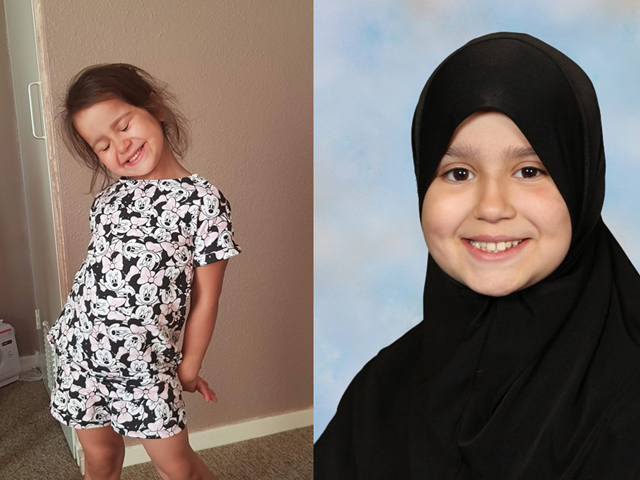Fear of Being Called Racist ‘Bar to Reporting Possible Child Abuse’ Finds Review Into Horrific Death of Girl

Child safety professionals and neighbours failed to speak up about a 10-year-old girl before she was murdered by her Pakistani father and step-mother because they were worried about being branded “racist” for questioning them.
Authorities may have missed opportunities to save Sara Sharif, who was 10-years-old when she was murdered in August 2023, because fears over questioning her Pakistani taxi driver father could lead to accusations of racism, a safeguarding review into the girl’s death have found.
Sara, who was described as being of “dual heritage” as she was born to a Pakistani father and Polish mother, started wearing a hijab when she was just eight years old. The review stated: “We now know that the wearing of the hijab did, in the later period of Sara’s life, hide bruising and injuries to her face and head”, reports The Times.
By the time the child died, after years of physical abuse from birth, her back had been broken ten times, she had been burnt with an iron, and she had injuries including beating marks and bites.
The new report found “race was a bar to reporting possible child abuse”, and when a care professional visited Sara at home “she may have been reticent to talk about [the hijab] for fear of causing offence”. Sara’s neighbours also had concerns about the abuse of the child but were reluctant to report it to the authorities because they “feared being branded as being racist, especially on social media”.
Nobody in Sara’s peer group or family wore a hijab, leaving her as a young child apparently spontaneously discovering an interest in Islam, Pakistani heritage, and concomitant modesty garments obviously suspicious to professionals had they been willing to ask difficult questions, the report found. A court had earlier found making child Sara wear the hijab was “not for any religious reasons, and was certainly not because Sara chose to do so”.
The judge had written: “This was another expedient to cover up the bruises that were all over Sara’s body.”
These attitudes of being afraid of racism preventing people from reporting concerns or investigating them “needs to be overcome”, today’s review stated.
After Sara died, her father fled to Pakistan. Years of reporting into court cases and reviews into the death of Sara have described her father Urfan Sharif as unstable, violent, and obviously interested in abusing Polish women. Indeed, as a young girl Sara was given into her father’s care by a British family court despite his history of being arrested for physically abusing girlfriends — all Polish women — and another child.
During earlier proceedings a court had heard Beinash Batool, Sharif’s second wife, had said she believed Sara was possessed by a “jinn”, a demon of Arab folklore. During the trial, Sharif blamed Batool as the “true villain”.
Sharif and Bartool were both sentenced to life in prison for murder last year. Sharif’s brother Faisal Malik was found guilty of allowing the death of a child and sentenced to 16 years.
Sara’s body was laid to rest in her mother’s native Poland, to which the woman returned years before.
Care and government professionals avoiding asking tough questions about abuse for fear of appearing racist and possibly suffering reputational or professional damage because of it is now a familiar state of affairs in the United Kingdom, which is only now coming to terms with decades of child abuse and rape scandals which, in many cases, have linked back to the Pakistani immigrant community.
A 2022 report found doctors in the United Kingdom are overlooking suspected cases of domestic abuse by “Asian” households for fear of being accused of racism. A survivor of one grooming gang said of her experience of police stamping down on any discussion of race in relation to rape: “I went to the authorities, my parents did. I sat and gave video interviews with the police, I was willing to work with them.
“But as soon as I said the names, I was made to feel as though I was racist and I was the one who had the problem… I was specifically told not to comment on the ethnicity of the perpetrators.”
Speaking of her attempt to get justice for being groomed and raped from the age of 12, she said: “I knew I wasn’t racist, but I felt like that was used as a way to silence me.”

